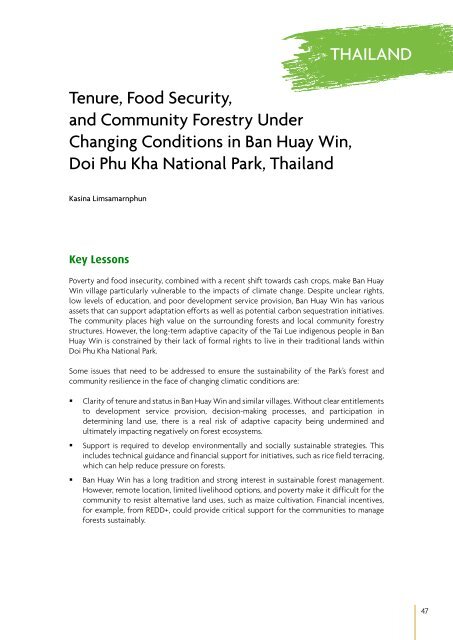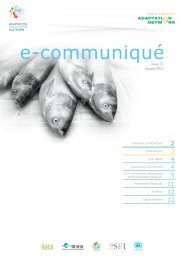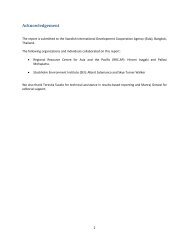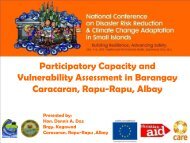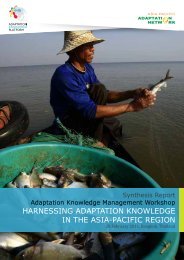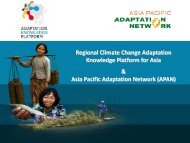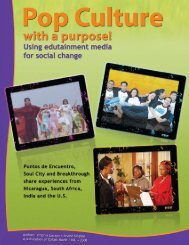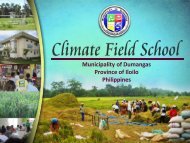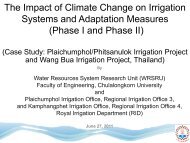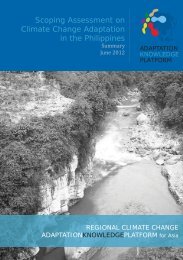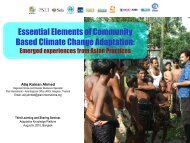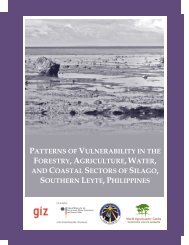Adaptation case studies.pdf - RECOFTC
Adaptation case studies.pdf - RECOFTC
Adaptation case studies.pdf - RECOFTC
You also want an ePaper? Increase the reach of your titles
YUMPU automatically turns print PDFs into web optimized ePapers that Google loves.
Tenure, Food Security,and Community Forestry UnderChanging Conditions in Ban Huay Win,Doi Phu Kha National Park, ThailandTHAILANDKasina LimsamarnphunKey LessonsPoverty and food insecurity, combined with a recent shift towards cash crops, make Ban HuayWin village particularly vulnerable to the impacts of climate change. Despite unclear rights,low levels of education, and poor development service provision, Ban Huay Win has variousassets that can support adaptation efforts as well as potential carbon sequestration initiatives.The community places high value on the surrounding forests and local community forestrystructures. However, the long-term adaptive capacity of the Tai Lue indigenous people in BanHuay Win is constrained by their lack of formal rights to live in their traditional lands withinDoi Phu Kha National Park.Some issues that need to be addressed to ensure the sustainability of the Park’s forest andcommunity resilience in the face of changing climatic conditions are:• Clarity of tenure and status in Ban Huay Win and similar villages. Without clear entitlementsto development service provision, decision-making processes, and participation indetermining land use, there is a real risk of adaptive capacity being undermined andultimately impacting negatively on forest ecosystems.• Support is required to develop environmentally and socially sustainable strategies. Thisincludes technical guidance and financial support for initiatives, such as rice field terracing,which can help reduce pressure on forests.• Ban Huay Win has a long tradition and strong interest in sustainable forest management.However, remote location, limited livelihood options, and poverty make it difficult for thecommunity to resist alternative land uses, such as maize cultivation. Financial incentives,for example, from REDD+, could provide critical support for the communities to manageforests sustainably.47


